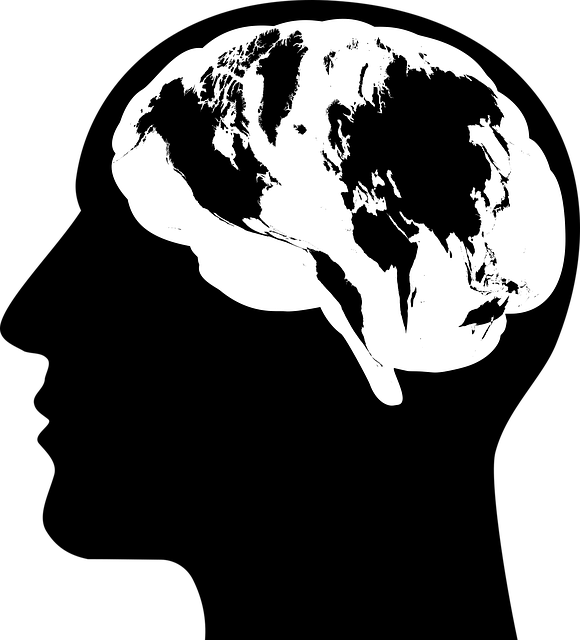To successfully market mental wellness apps, especially CBT-based therapies, segment your adult audience by age, culture, and tech proficiency. Tailor services to address specific age-related challenges like loneliness or work-life balance. Incorporate trauma support tailored to different demographics for discrete stress management. Use targeted messaging and culturally sensitive approaches like Social Skills Training and stigma reduction to engage diverse users, ensuring your app resonates with adults seeking Therapy for Adults and CBT solutions.
“Unleashing the Power of Digital Wellness: Crafting a Winning Marketing Strategy for Adult Mental Health Apps. In today’s digital landscape, mental wellness apps offer transformative therapy for adults grappling with diverse mental health challenges. This comprehensive guide navigates the intricate process of developing a targeted marketing strategy. From understanding adult demographics and their unique CBT needs to leveraging digital channels and building engaged communities, discover how to effectively reach and support this vital audience. Uncover strategies to differentiate your app, foster trust, and promote continuous user engagement.”
- Understanding Your Target Audience: Adult Demographics and Mental Health Needs
- – Identifying common mental health challenges among adults
- – Segmenting the adult population for targeted marketing
- – Tailoring messaging based on age, lifestyle, and cultural factors
Understanding Your Target Audience: Adult Demographics and Mental Health Needs

Understanding your target audience is a crucial step in developing an effective marketing strategy for mental wellness apps, especially when catering to adults. Adult demographics encompass a wide range of individuals with diverse mental health needs and preferences. According to recent studies, therapy for adults, particularly cognitive behavioral therapy (CBT), has gained significant popularity as a preferred treatment approach. This trend highlights the growing awareness and demand for evidence-based practices in addressing common mental health concerns such as anxiety, depression, and stress-related disorders.
Marketing strategies should consider the varying ages, cultural backgrounds, and technological proficiency within this adult demographic. Effective communication strategies can engage individuals by emphasizing the accessibility and convenience of digital therapy platforms. Furthermore, focusing on trauma support services tailored to specific age groups can cater to unique mental health needs, fostering a sense of community and understanding among users. Incorporating these aspects in your marketing will ensure that your app resonates with adults seeking reliable and personalized mental wellness solutions.
– Identifying common mental health challenges among adults

Mental wellness apps have a significant role to play in addressing common mental health challenges among adults. According to recent studies, depression and anxiety disorders are prevalent, affecting millions worldwide. Recognizing these trends, many seek accessible solutions like Cognitive Behavioral Therapy (CBT) and alternative strategies such as Mindfulness Meditation. These approaches have gained traction due to their effectiveness in managing stress, alleviating symptoms of depression, and promoting overall well-being.
Identifying specific challenges is crucial for app developers. For instance, modern lifestyles often lead to increased feelings of loneliness and isolation, which can contribute to depression. Therefore, apps focusing on Depression Prevention strategies, fostering a sense of community through digital platforms, and incorporating Empathy Building Strategies in virtual interactions could prove valuable. By understanding these issues, app marketers can create targeted content and features that resonate with users facing similar mental health challenges, enhancing the appeal and efficacy of their offerings.
– Segmenting the adult population for targeted marketing

Segmenting the adult population is a strategic move for marketing mental wellness apps, especially those focused on Therapy for Adults and Cognitive Behavioral Therapy (CBT). By understanding different demographic groups and their unique needs, app developers can tailor their marketing efforts to resonate with specific segments. For instance, young adults might be more inclined to embrace digital therapy due to its accessibility and convenience, while older adults may prefer a more personalized approach.
Targeting these groups with tailored messages that address their emotional regulation and mental wellness concerns is key. Apps offering trauma support services can highlight their ability to cater to complex needs by providing discrete, accessible tools for managing stress, anxiety, or past traumas. This segmented marketing strategy ensures that potential users receive relevant information, fostering a sense of connection and encouraging them to explore the app’s benefits.
– Tailoring messaging based on age, lifestyle, and cultural factors

In crafting a marketing strategy for mental wellness apps, one key aspect is segmenting and personalizing content to resonate with diverse audiences. Age plays a significant role in shaping communication; for instance, messaging aimed at teens might focus on peer support and digital safety, while adults may be more receptive to discussions about work-life balance and stress management techniques. Lifestyle considerations are equally important, with app promotions tailored to busy professionals requiring quick, efficient coping strategies versus those designed for individuals seeking a more immersive experience like cognitive behavioral therapy (CBT) for managing anxiety or depression.
Cultural sensitivity is another critical element. Apps should acknowledge the effectiveness of diverse therapeutic approaches, such as incorporating elements of Social Skills Training for improving interpersonal interactions and Mental Illness Stigma Reduction Efforts to foster inclusive communities. Leveraging Public Awareness Campaigns Development can help normalize conversations around mental health, ensuring that marketing materials are not only engaging but also culturally relevant and adaptive.
In developing a marketing strategy for a mental wellness app focused on therapy for adults, understanding the diverse mental health needs of different adult demographics is crucial. By segmenting the adult population and tailoring messaging based on age, lifestyle, and cultural factors, your app can effectively reach those in need of cognitive behavioral therapy or other forms of support. This targeted approach ensures that your marketing efforts resonate with potential users, fostering a sense of understanding and accessibility for their mental wellness journeys.









